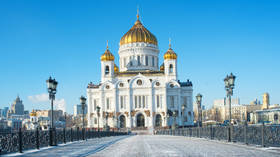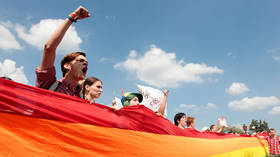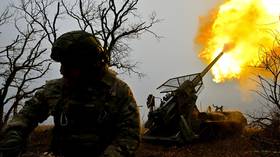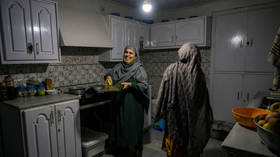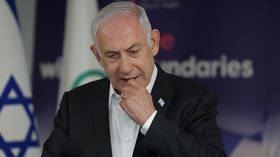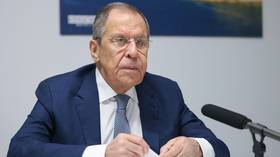Russia’s LGBT ban explained
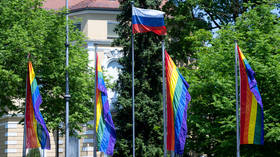
The Russian Supreme Court on Thursday outlawed the “international LGBT public movement,” designating it as extremist. The ruling, which took immediate effect, also impacts the campaign’s subsidiaries, the court said, without naming any specific organizations.
What led to the ban?
Over the past few years, Russia has gradually tightened its laws concerning the spread of so-called “LGBT ideology” in the country. The first measures tackling the issue were adopted in 2013, when the country outlawed dissemination of the “ideology” among minors. The ban was reinforced last December, when it was extended to adults, Now anyone found guilty of promoting “non-traditional sexual relations,” transgenderism or pedophilia faces major fines.
This summer, Russia also introduced a ban on gender-reassignment surgery and hormone therapy done as part of the gender-transition process. Apart from that, the legislation prohibited altering gender details in public records.
What prompted the court ruling?
The designation stems from a lawsuit filed by the Russian Justice Ministry with the Supreme Court earlier in November, that argued the movement’s activities qualified it as an “extremist group.” Among other things, it has been sowing “social and religious discord” in the country, the ministry said. The lawsuit, heard by the court behind closed doors, reportedly analyzed over 20 volumes of material.
What penalties does the extremist designation entail?
According to Russian law, extremist activities involve committing or seeking to commit crimes motivated by “political, ideological, racial, national or religious hatred,” as well as those driven by animosity towards a select “social group.” The latter category is not defined precisely in Russian law and has long been the subject of controversy and the source of conflicting court rulings.
Setting up an extremist organization in Russia risks severe legal penalties, including a fine of up to 800,000 rubles (nearly $9,000) and a jail term of up to ten years. Merely participating in an extremist group is punishable by a smaller fine of up to 600,000 rubles and up to six years of imprisonment.
Which groups does the ban affect?
It still remains unclear, however, which pro-LGBT organizations, if any, will actually be affected by the new designation. The country’s largest such group is the ‘Russian LGBT network,’ a civic platform established in the mid-2000s.
The network brings together multiple regional groups that promote the rights of sexual minorities. The platform, which was designated a “foreign agent” two years ago, is internationally recognized and part of LIGA – the International Lesbian, Gay, Bisexual, Trans and Intersex Association, a major gay rights NGO based in Switzerland, which has been active since late 1970s.
What impact will the ruling have on LGBT people?
Legal experts appear to be split on the potential consequences of the Supreme Court ruling, with some believing it will have no impact on the lives of sexual minorities. The designation was not related to sexual orientation per se, but to actual extremists and a “hostile organization, using them as its agenda,” lawyer Dmitry Agranovsky told RIA Novosti.
“This decision will not affect people’s lives. LGBT people have never been persecuted in Russia on these grounds, and there is no indication that they will be persecuted,” Agranovsky stated.
A similar opinion was expressed by attorney Aleksey Mikhalchik in an interview with RAPSI, a news agency focused on legal and court news. He said the ruling was likely to affect those participating in extremism-related activities and self-identifying as a pro-LGBT activists. Still, one does not necessarily need to possess an “LGBT membership card” or be a member of any group to get into trouble with the law, he warned.
Some, however, expressed concern that the designation might affect a “huge number” of people, given the secretive nature of the court hearing and its vague definition of the “international LGBT movement.”
“Nobody knows who will be held accountable, because the state conceals what exactly it recognizes as extremist,” Aleksey Bushmakov, a Yekaterinburg-based lawyer and rights activist, told the outlet Federalpress. “It is unclear what is prohibited and what is permitted, and only judicial practice will allow us to navigate this.”
